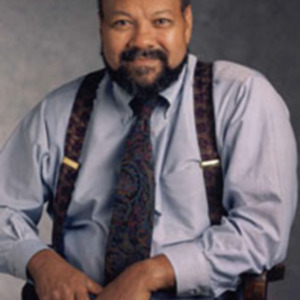Henry Hampton
Dublin Core
Title
Subject
Description
In crafting an archive of mixed media, Henry Hampton was well aware of the impact of media coverage on the popular perception of the Civil Rights Movement. Film and photography were particularly effective in direct action movements: they allowed young children and college students to employ their agency through activism and catalyze the movement. What distinguishes Hampton’s media collection is the unique Black perspective he brought to his work in an era when white photographers usually stood behind the camera.
In 1963, Rev. James Bevel, along with several other key organizers, orchestrated the “Birmingham Children’s Crusade” Birmingham, AL, a unique movement in which children were the primary demonstrators. Designed to avoid potential job and home loss, the movement’s originality proved to be the deciding factor in a period of racial violence and turmoil. Whereas previous movements and demonstrations brought tens of adults into the streets, the Birmingham Children’s Crusade was able to flood the streets (and jails) with hundreds of children as old as seventeen and as young as six. Henry Hampton was able to capture this pivotal series of events, as well as numerous other critical events in the Civil Rights Movement, in his two-part PBS television documentary, “Eyes on the Prize.” Through hundreds of interviews and days worth of footage, Hampton, along with Blackside Productions, was able to provide the nation with a powerful visual recap of the exceptional and exceptionally important protest.
College students and young adults participated in the civil rights movement largely through direct action protest. Student-led organizations like the Student Nonviolent Coordinating Committee (SNCC), the Congress of Racial Equality (CORE), and the Southern Christian Leadership Conference (SCLC) produced and funded direct action demonstrations across the country. In the summer of 1964, these three organizations combined their efforts to construct The Freedom Summer. Volunteers from across the country travelled to rural parts of the Mississippi Delta to create community centers, voter registration, and freedom schools. Henry Hampton and Blackside Productions documented the summer consistently. In the archive, you will find transcripts, interviews, and photographs of college students during and prior to 1964 referring to direct action protests and the Freedom Summer of 1964. The extensive compilation of primary sources makes it possible to track these young college students and their experiences from the early 1960s to the late 1990s.
While young children did not have the organizing capabilities of the older college students, they were nonetheless active in their communities in bringing about social change. In the 1965 march from Selma to Montgomery, eight-year-old girls like Sheyann Webb and Rachel Nelson West braved the threat of police brutality to march on the Edmund Pettus Bridge in Selma. Their efforts could not have come to fruition without the organizing capabilities of Frederick D. Reese, who succeeded in drawing national attention to the movement by inviting Dr. King to lead the way. Both Webb and West attracted the mainstream media’s attention, but for different reasons: some spectators saw the violence against children as horrific, while others gawked at the tragedy, seeing Black children as insensate to pain. While Henry Hampton could not control the perception of his images, he was able to showcase vignettes of the Black struggle through photography, film, and personal interviews to include Black voices in the shaping of a historical narrative.
"Henry Hampton Collection." WU Libraries: Department of Special Collections: Film and Media Archive. Washington University Film and Media Archive. Web. 1 May 2015. <http://library.wustl.edu/units/spec/filmandmedia/collections/henry-hampton-collection/>.
Creator
Source
Publisher
Citation
Catalog Search
Search for related records in these catalogs:

